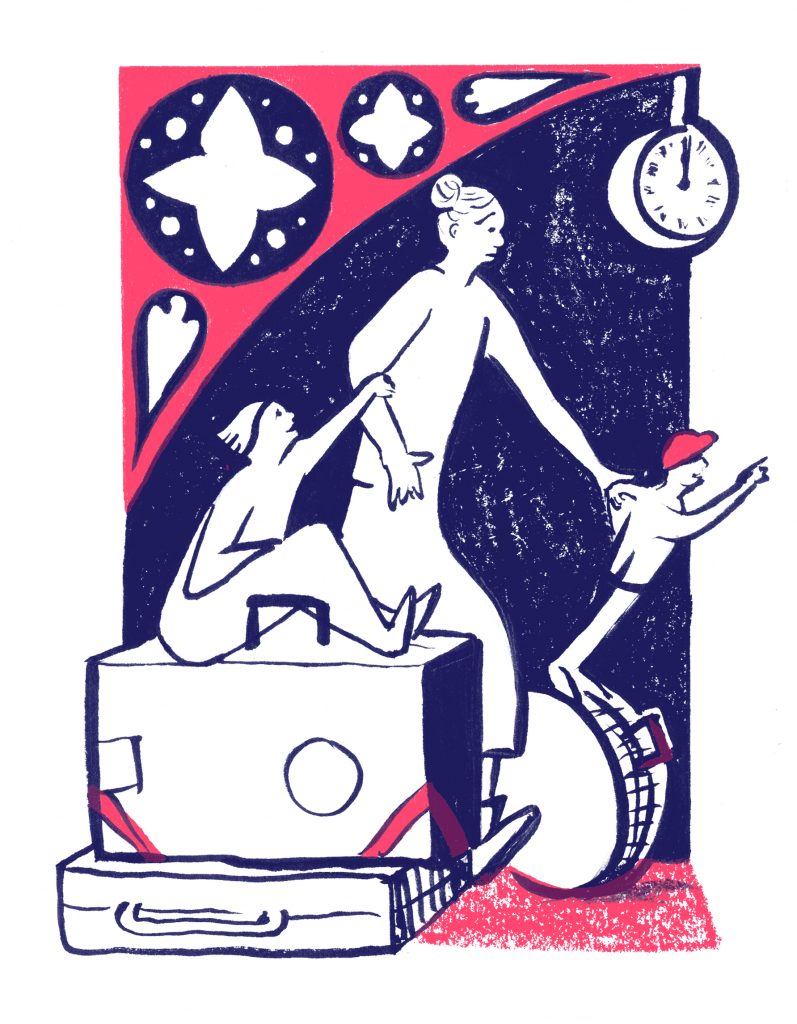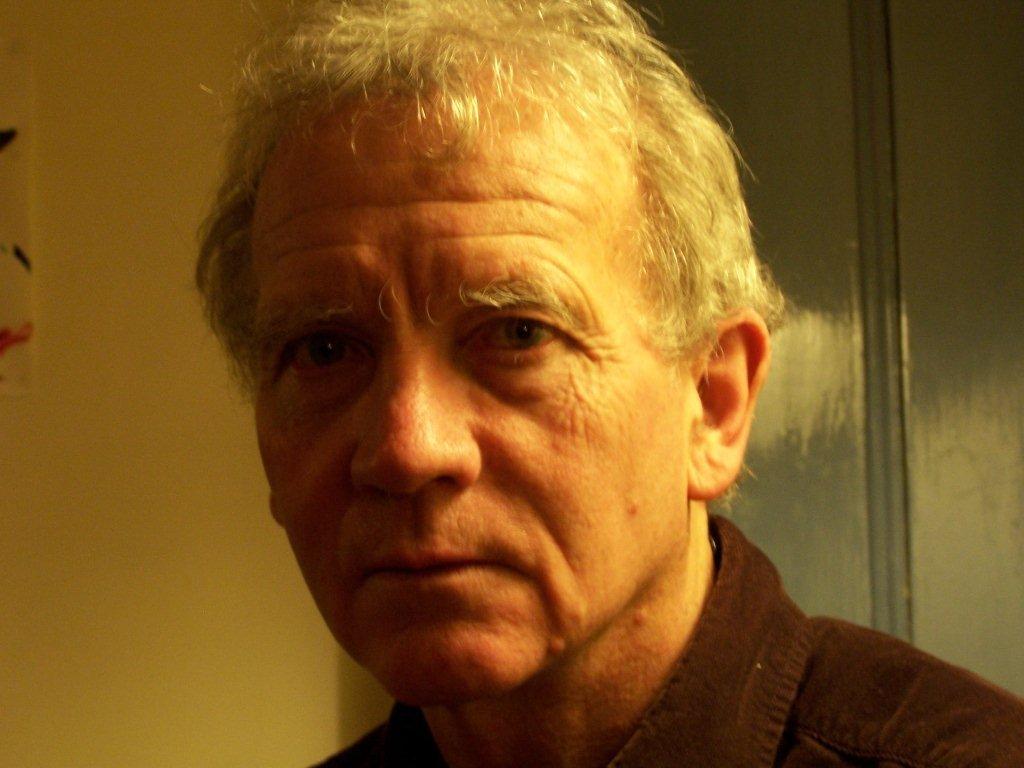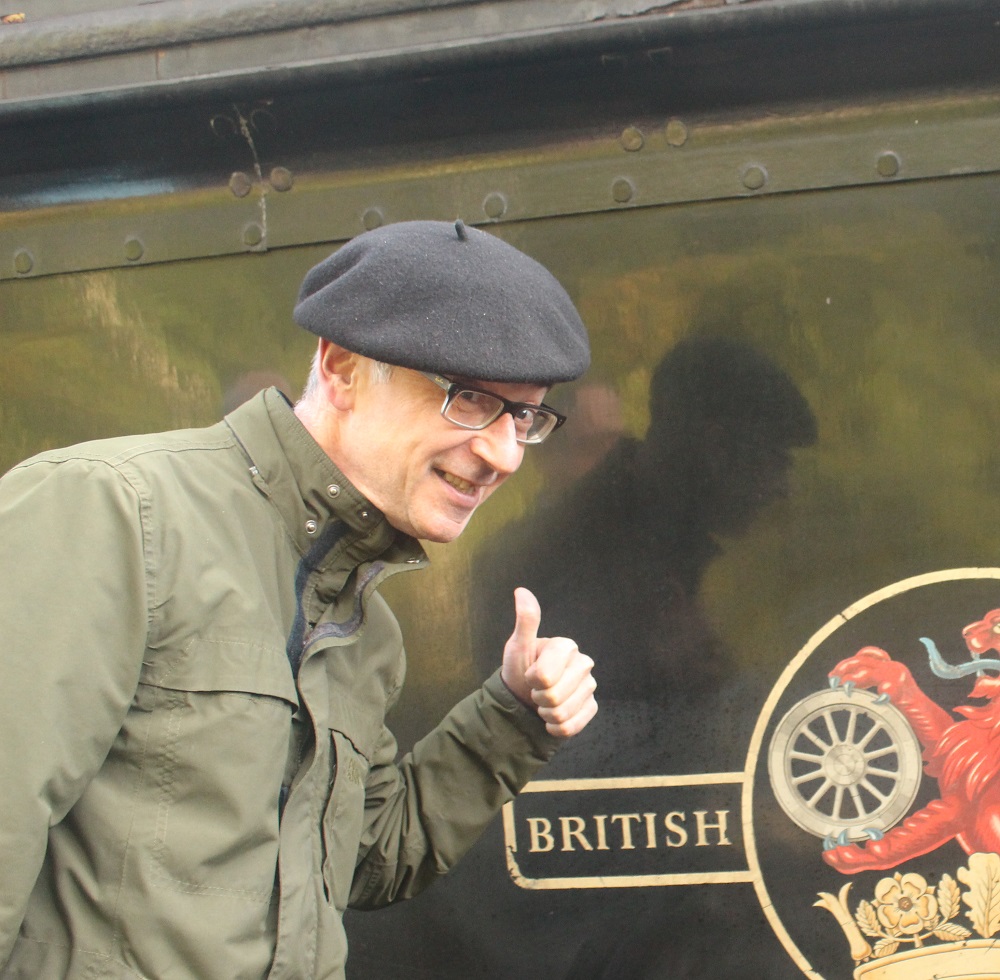Great Malvern
Arrivals and Departures
Look up. At the tops of the pillars supporting the cast iron girders of this station, there are intricate designs of flowers and foliage, their colours brightening the grey and red uniform of the railway station. These are the same buds and leaves that looked down on a woman on this platform over a hundred years ago. Imagine: their colours are deadened by the darkness of night, as she tries to herd tired children and wayward luggage across the deserted platform. The woman is Helen Thomas, wife of poet Edward Thomas and it is the 4th of August 1914, at the eve of the Great War.
‘Station after station she saw platforms crowded with serving soldiers and reservists summoned to their regiments; also holiday-makers hurrying home. So she with her party and copious luggage was heading against the grain of world catastrophe into a locality of idyll: of woodlands, fruit, flowers, streams, ancient farms and churches, in a glorious hot summer, to be among poets.
The train, scheduled to run to Ledbury, halted at Oxford and everyone disembarked. The stationmaster, not certain there would be another train, advised Mrs Thomas to find rooms in Oxford for the night. But a porter assured her there were none left. Nor could she have afforded it. She sent Edward a telegram, and waited.
A train came and, stopping at every station, got them to Malvern by midnight. There the stationmaster was certain: no onward train that night.’

Nor would he let her, the dog and the children sleep in the waiting room. In fact they must leave the Railway’s premises altogether. Happily a porter had a friend with a cab who would drive them the ten miles or so to Oldfields, their rented farmhouse, near Ledington.
After Edward Thomas’s death, Helen in her writings continually relived certain luminous events in their lives together. This railway journey and its continuation by cab at night was one such. Crossing the Malverns between the north hill and the south, suddenly all the view was ‘lighted up like a stage set’ by ‘a huge full harvest moon’. In Ledbury ‘silent and empty and sleeping’, the cabbie halted to ask his way of the one waking fellow human, a very suspicious policeman, who shone his lantern on the sleeping children and questioned Helen closely. He wrote all their names in his notebook. The Russian schoolboy, who alarmed him most, gave him most trouble, getting the spelling of Mrosovski right. The cabman, searching for the particular farmhouse, took the last mile very slowly. Certainty came when Helen saw Edward in the moonlight, at the gate. In Steep they had a love-call to one another, when either was arriving home. They exchanged it there at Oldfields: ‘Coo-ee! Coo-ee!’
That summer Edward Thomas began to write poems. He had written twelve dozen when a close-passing shell killed him at Arras on Easter Sunday 1917. Among the first was the greatly loved railway-poem ‘Adlestrop’ whose occasion was the halting of his train ‘unwontedly’ there, on 23 June 1914, as he travelled to meet Robert Frost in Ledington. In August then, in wartime, the two poets resumed their conversations.
‘I shall never forget that journey’, Helen later wrote. But despite the stress of her arrival, she had happy memories of the following few weeks spent at Dymock, with the Abercrombies, the Gibsons, the Frosts and visiting friends: ‘We spent those happy weeks in the open air, in the evenings sitting with our friends and talking – talking of people and life and poetry’.
Ledbury and the surrounding area has a proud history of evenings spent talking of people and life and poetry: a tradition continued every year at Ledbury Poetry Festival’s stellar series of readings, trails, discussions and workshops.
Lascelles Abercrombie refers to The Malvern Hills in Ryton Firs
And only yesterday it was I saw
Veil’d in grey wavering smoke
My shapely Malvern Hills.
That was the last hail-storm to trouble spring:
He came in gloomy haste,
Pusht in front of the white clouds quietly basking,
In such a hurry he tript against the hills
And stumbling forward spilt over his shoulders
All his black baggage held,
Streaking downpour of hail.
Then fled dismayed, and the sun in golden glee
And the high white clouds laught down his dusky ghost.
Coming and Going

Great Malvern station has seen many travellers come and go throughout its 161-year history. Many poets travelling to and from Ledbury Poetry Festival use this line every year – full of excitement (and maybe a few nerves!) on the way there, and full of poems on the way home again.
The poet John Hegley shares his memories of a return journey from Ledbury Poetry Festival, illustrating the reflective quality of rail travel:
‘Festival action completed, I leave Ledbury late morning on the Birmingham-bound 10.56.
After thirteen minutes aboard, I step down at Great Malvern, in order to say hello again
to the end-of-the-platform café, where I settle with a bevvy and a bag heavier with poems, than on my outward journey.
My first ever railway experience was a steam train service with my father
which rather bonded us; the livery on that occasion, other than Great Western.
My onward connection is at just after a-quarter-to-two, so there is much time to mull
and to chew over biscuits and poetries.
I think you would have liked the souvenir displays here Dad, and the glaze on my Festival memento although time is what the French call une rabat-joie, a spoil sport. Still, I will take a short while to savour that other day’s British Railway joyousness and the flavour and the texture of this last café custard cream.’
Your Poetry on Platforms
Does the railway remind you of any special days? They could be as momentous as the outbreak of war or as simple as a visit to a friend. Maybe the railway makes you think of a special person, and a journey taken together. Whatever connections that people and trains form in your minds, we encourage you to create your own ‘Poetry on Platforms’.
Credits
Excerpt from Under Storm’s Wing by Helen Thomas is reproduced with permission of the Licensor through PLSclear.

